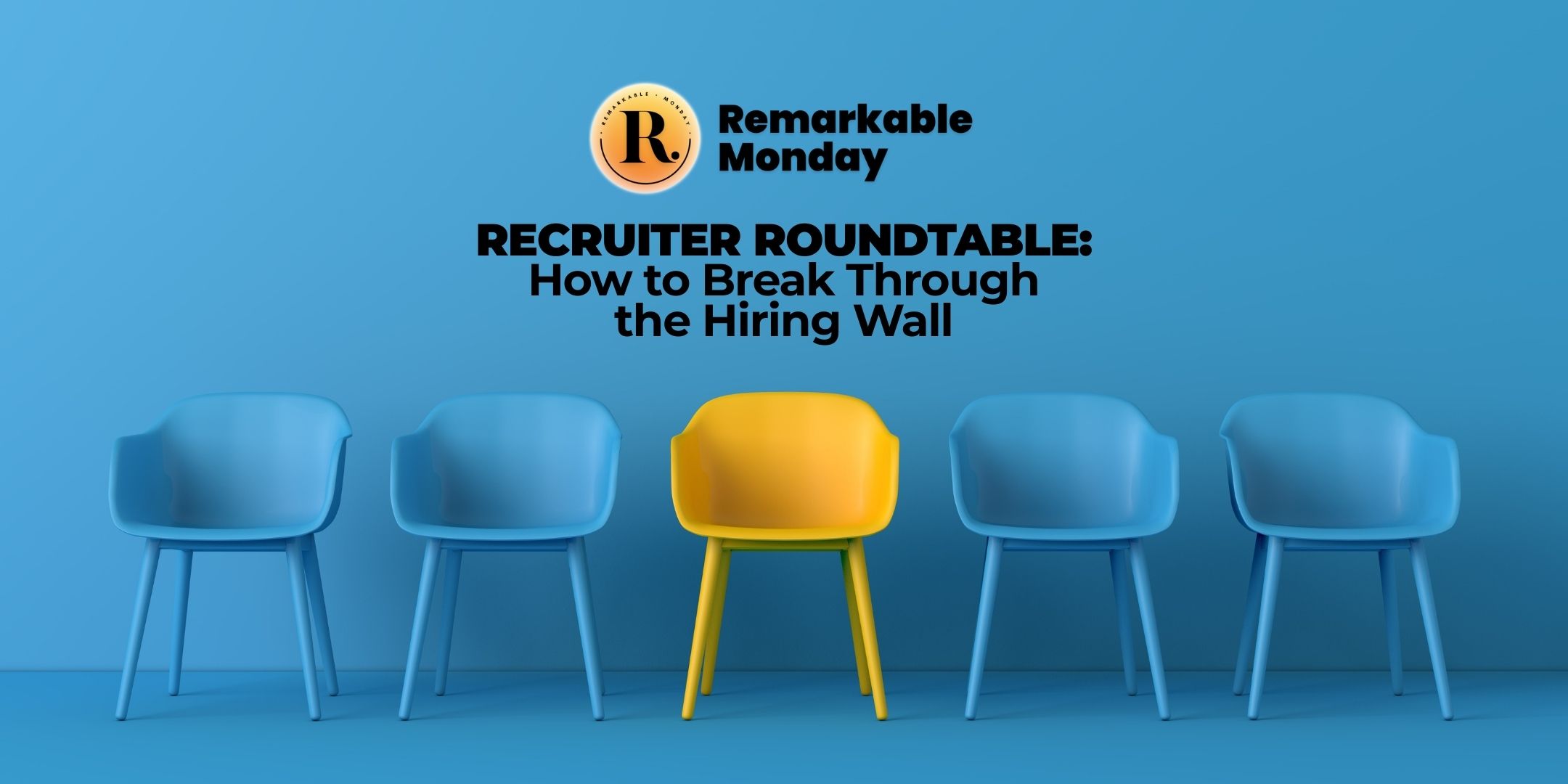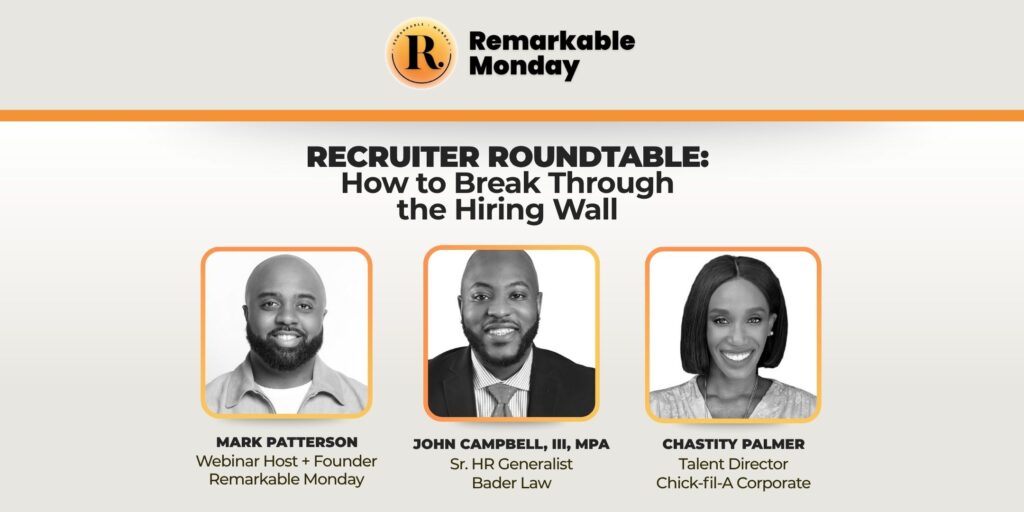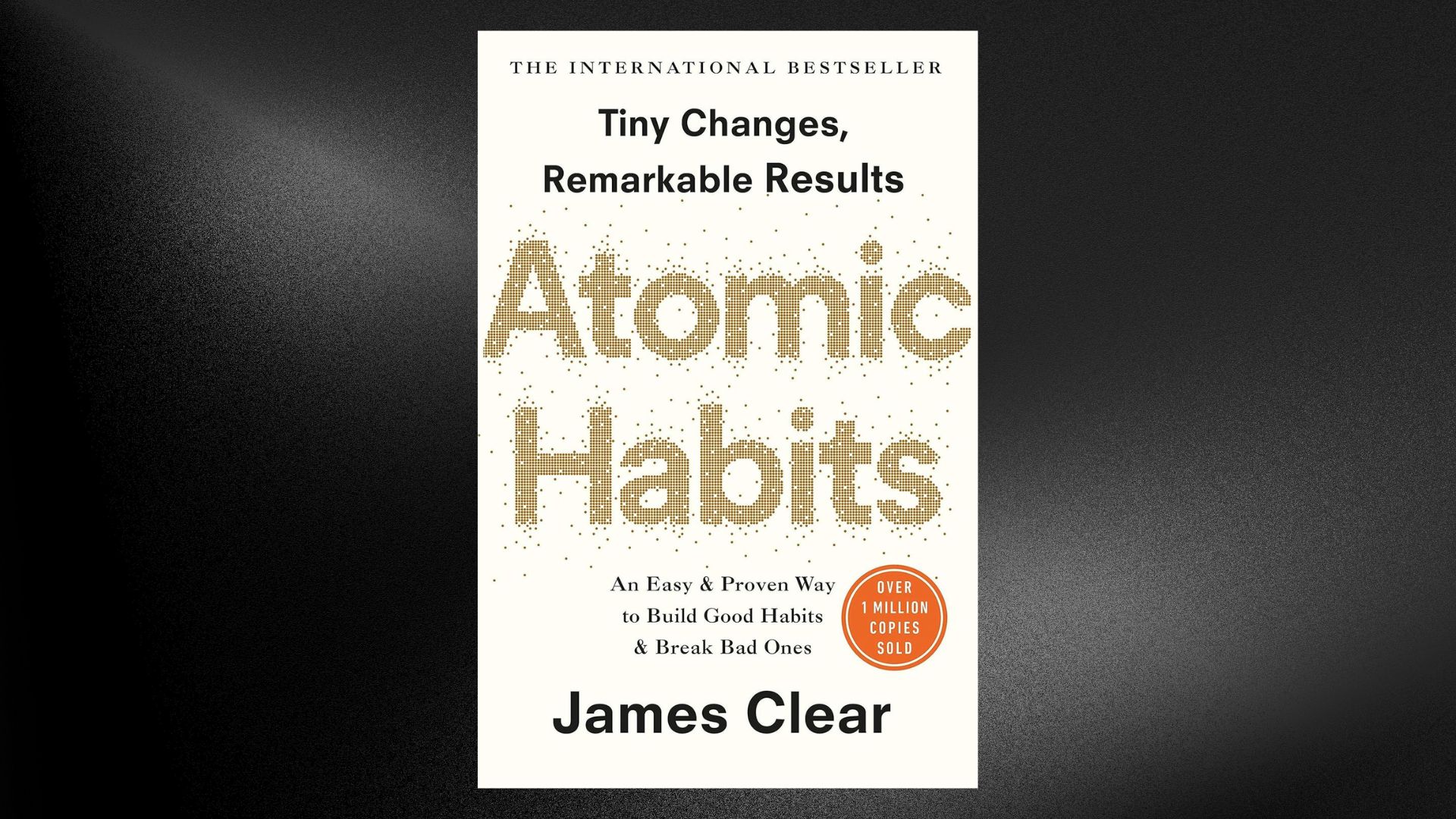

From the Remarkable Monday Recruiter Roundtable featuring Chasity Palmer and John Campbell
The job market in 2025 feels tougher than ever. You send applications, wait for weeks, and hear nothing back. You start wondering if your résumé even makes it past the algorithm. But behind every “submit” button are people — real recruiters reading your story, balancing hundreds of applications, and making hard decisions every day.
That’s why we hosted the Remarkable Monday Recruiter Roundtable, featuring Chasity Palmer, Director of Talent Consulting at Chick-fil-A, and John Campbell, Senior HR Generalist at Bader Law. Together, we pulled back the curtain on what recruiters really look for, how to stand out, and how to push through rejection without losing hope.
Here are seven powerful takeaways from our conversation.
Tailor Your Résumé Like It’s a Marketing Campaign
“More is not always better,” Palmer said. “I think it’s really important that your resume is super tailored to the position and the organization. So if you’ve done a million different things, you don’t necessarily need to include all million on there. Focus in on the experiences that are most relevant.”
She added that clarity always wins: “Actually, I think a clean, structured, formatted resume is best. I’m gonna be honest with you all, I didn’t spend a lot of time on cover letters… I read the resume and immediately it was clear to me that they would be a strong candidate because of the examples that they included.”
Keep it focused, keep it clean, and speak directly to the role you’re applying for.
Get That Job!: The Quick and Complete Guide to a Winning Interview is a practical, step-by-step guide to mastering modern job interviews with confidence and authenticity. Praised by Forbes as “Excellent,” this book helps readers replace scripted answers and guesswork with a strategy that’s both genuine and persuasive. Whether you’ve faced repeated rejections, struggle to sell your strengths, or haven’t interviewed in years, Get That Job! equips you to navigate every format—including AI interviews—with clarity and confidence. It’s the ultimate resource for anyone ready to stop hoping for the job offer and start earning it.
Recruiters Want a Story — Not Just a Skill List
Campbell said consistency and storytelling matter just as much as skills. “One thing that I’m looking for is the consistency in the actual resume. It’s got to make sense. It is your first presentation to me. So I’m looking for the story. I’m trying to read who you are before I see you.”
Your résumé isn’t just a document — it’s your narrative. Make sure it connects the dots and helps recruiters see your trajectory, not just your titles.
Referrals and Networking Still Matter More Than Anything
Networking still separates strong candidates from overlooked ones. “Because you never know what could come from that opportunity,” Palmer said. “Don’t underestimate the power of your network, the power of people who are around you, and don’t be afraid to put yourself out there. And you’ve got this.”
Whether it’s a past coworker, a LinkedIn contact, or a professional community, relationships open doors that algorithms can’t.
How to Talk to Anyone About Anything: Improve Your Social Skills, Master Small Talk, Connect Effortlessly, and Make Real Friends is a practical, confidence-building guide to becoming a more natural and engaging communicator. Designed for anyone who feels awkward in social settings, this book teaches you how to turn small talk into meaningful conversation, ask better questions, and tell stories that captivate any audience. Through actionable tips, real examples, and simple techniques, you’ll learn how to boost your charisma, strengthen relationships, and feel at ease in any room. Whether you’re meeting new people, connecting with coworkers, or deepening friendships, this guide helps you speak with confidence—and be remembered.
Turn Rejection Into a Relationship
Palmer said she often remembers the candidates who respond to rejection with professionalism and grace. “There have been candidates who I’ve had to turn down, who were amazing. And the way that they responded to being turned down was gracious… I went back after them… We’re going to get you here all because of how they showed up.”
Every rejection is a test of character and a chance to make a lasting impression.
Understand the Waiting Game Is Not Personal
Campbell offered a behind-the-scenes look at why hiring sometimes takes longer than expected. “When I hire somebody, it’s literally almost a 10-man job just to bring on one person,” he said. “That’s including IT, that’s including facilities… Sometimes you want the job tomorrow, but the training class doesn’t start for two more weeks… there’s all kinds of things that are taking place in that timeframe.”
Delays don’t always mean rejection. Often, it’s logistics, not a lack of interest.
Follow Up Without Pressure
Recruiters appreciate initiative, but timing and tone matter. A simple follow-up note — something like “Thank you again for the opportunity. Please let me know if there’s anything else you need from me.” — keeps you visible without feeling overbearing.
Campbell said most recruiters don’t mind a polite check-in, especially when it shows continued interest rather than desperation.
The Hidden Power of Encouragement and Faith
The roundtable ended not with job tips but with encouragement. We acknowledged that job searching tests your patience, confidence, and sometimes even your faith. Palmer reminded everyone that strategy matters, but so does hope.
“You’re strategic with everything else in life — your career deserves that same strategy,” she said.
And Campbell added, “Don’t sit on the sidelines. Keep applying, keep networking, and keep your faith up. You can’t get the job you don’t apply for.”







